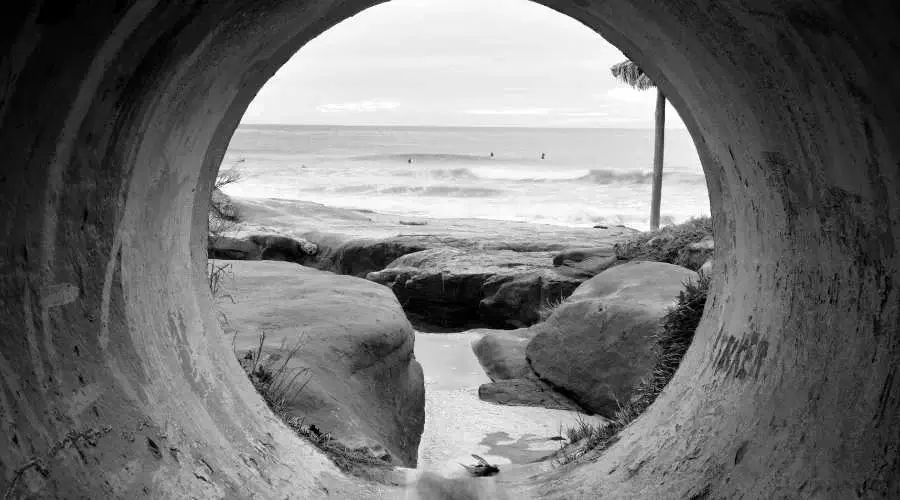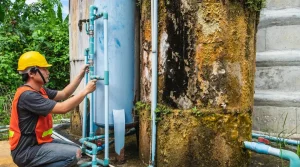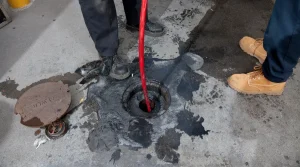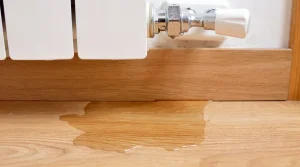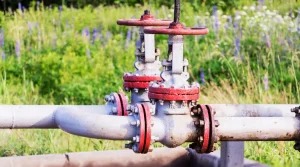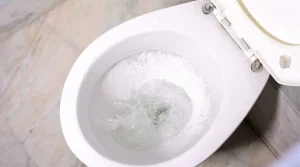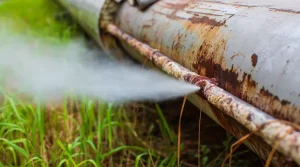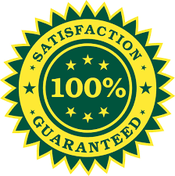Key Takeaway
- Understanding the types of plumbing systems—storm drainage, sanitary drainage, and potable water—ensures the smooth operation of homes and businesses.
- Each type serves a specific purpose: delivering clean water, removing wastewater, and preventing flooding.
- BJC Plumbers North Bergen provides expert maintenance and repair services to keep these systems safe, efficient, and up to code.
Plumbing Systems: Keeping North Bergen Flowing Smoothly
Whether turning on a tap at home or washing your hands in a restaurant, you interact with a complex plumbing system to deliver clean water and efficiently remove waste. In North Bergen, NJ, these systems are the unsung heroes of daily life, ensuring residents’ comfort, health, and safety.
This guide delves into the three main types of plumbing systems—storm drainage, sanitary drainage, and potable water systems—outlining their functions, benefits, and maintenance tips. You’ll also find answers to common plumbing questions, ensuring you’re well-informed to keep your home or business running smoothly.
The 3 Main Types of Plumbing Systems in North Bergen, NJ
1. Storm Drainage Systems
Storm drainage systems are essential for managing rainwater and protecting properties from water damage caused by heavy rainfall. These systems channel rainwater away from streets, homes, and buildings, minimizing flooding and environmental impact.
North Bergen’s storm drainage network comprises over 1,400 miles of pipes and canals. It includes grates, screens, and pumping stations that filter debris like leaves and twigs before directing water to rivers and basins. Levees and underground canals further enhance the system’s efficiency in managing rainwater.
Key Benefits:
- Prevents flooding and property damage
- Channels rainwater safely away from populated areas
- Protects local wildlife habitats and water quality
Maintenance Tip: Regular cleaning and inspections of storm drainage systems are critical, especially during the rainy season. Clear debris from gutters and check for blockages to ensure smooth water flow.
2. Sanitary Drainage Systems
Sanitary drainage systems handle wastewater from homes, businesses, and public buildings, transporting it to treatment facilities where it is processed and safely disposed of. Properly maintained systems prevent health hazards and ensure efficient waste removal.
Key components of these systems include:
- P-Traps: Found under sinks, P-Traps use water to create a seal that blocks sewer gases from entering the building.
- Roof Vents maintain air pressure in pipes, allowing wastewater to flow freely without backflow.
Key Benefits:
- Prevents harmful bacteria buildup
- Blocks sewer gases from entering indoor spaces
- Ensures the safe removal of wastewater
Maintenance Tip: Schedule regular plumbing inspections to detect leaks, damaged P-traps, or blocked vents. Addressing issues early can prevent unpleasant odors and health risks.
3. Potable Water Systems
Potable water systems deliver clean, safe drinking water to homes and businesses. These systems are designed to prevent contamination from storm and sanitary systems, ensuring water safety for daily activities like cooking, cleaning, and drinking.
Pipes in these systems are often made of durable, non-corrosive materials like PVC, PEX, or copper. Water flows through municipal distribution networks before reaching individual properties.
Key Benefits:
- Provides safe drinking water
- Supports essential household and commercial activities
- Meets strict health standards to prevent waterborne diseases
Maintenance Tip: Inspect pipes for corrosion or leaks and check for potential cross-contamination. Annual maintenance can prevent costly repairs and ensure water quality remains high.
Plumbing Transport Systems
Plumbing transport systems include pumps, gravity-based mechanisms, and valves, all working together to move water and waste efficiently.
- Pumps: In sump and municipal water systems, pumps redirect excess water and prevent basement flooding.
- Gravity: In areas without pumps, gravity moves wastewater to treatment facilities through underground pipes.
- Valves allow users to control water flow for maintenance and repairs, ensuring safety and preventing water waste.
Properly functioning transport systems are vital for the overall health of your plumbing infrastructure.
FAQs about Plumbing Systems in North Bergen, NJ
1. Why is regular maintenance essential for plumbing systems?
Regular maintenance prevents minor issues from becoming major problems. It helps avoid water contamination, costly repairs, and health hazards caused by leaks or backflows.
2. What are the signs of a plumbing system leak?
Common signs include:
- Unexplained puddles of water
- Higher-than-usual water bills
- Low water pressure
- Unusual sounds like dripping or hissing in pipes
- If you notice these signs, contact a licensed plumber immediately to prevent further damage.
3. How can I protect my home from flood damage?
Installing a sump pump is one of the most effective measures for preventing basement flooding. Additionally, ensure your storm drainage system is debris-free to avoid overflow.
4. How do potable water systems stay safe from contamination?
Potable water systems are designed to remain separate from storm and sanitary systems. Backflow preventers and non-corrosive materials like PVC and copper keep water safe and clean.
5. What is a P-trap, and why is it important?
A P-trap is a U-shaped pipe under sinks that retains water to block sewer gases from entering buildings. This simple yet essential component ensures clean air quality indoors.
6. How often should plumbing systems be inspected?
Most plumbing systems should be inspected annually. However, high-usage systems like those in commercial buildings may require more frequent checks to ensure optimal performance.
7. Can I clean my storm drainage system myself?
You can perform basic maintenance like clearing leaves and debris from gutters. For more complex tasks, such as inspecting underground pipes, it’s best to hire a professional plumber.
8. What materials are best for potable water pipes?
PVC, PEX, and copper are common materials for potable water systems. Each offers durability, corrosion resistance, and safety for drinking water.
9. What should I do if my sump pump stops working?
First, check the power supply and ensure the pump is plugged in. Call a licensed plumber to inspect and repair or replace the unit if it’s still not working.
10. How can I tell if my sanitary drainage system is clogged?
Signs of a clog include slow-draining sinks, gurgling noises in pipes, and unpleasant odors. If you experience these issues, a professional plumber can diagnose and resolve the problem.
Why Choose BJC Plumbers North Bergen?
BJC Plumbers North Bergen specializes in maintaining, repairing, and upgrading plumbing systems to ensure safety and efficiency. Our team of licensed experts understands the unique plumbing challenges faced by North Bergen residents and businesses.
Our Services Include:
- Trenchless pipe repair
- Leak detection and repair
- Sump pump installation and maintenance
- Drain cleaning and inspection
We’re committed to providing high-quality, affordable plumbing solutions tailored to your needs. Contact us today to schedule an inspection or learn more about our comprehensive services.
With proper care and professional support, your plumbing systems can remain efficient, safe, and reliable for years. Let BJC Plumbers North Bergen handle the heavy lifting while you enjoy peace of mind.

